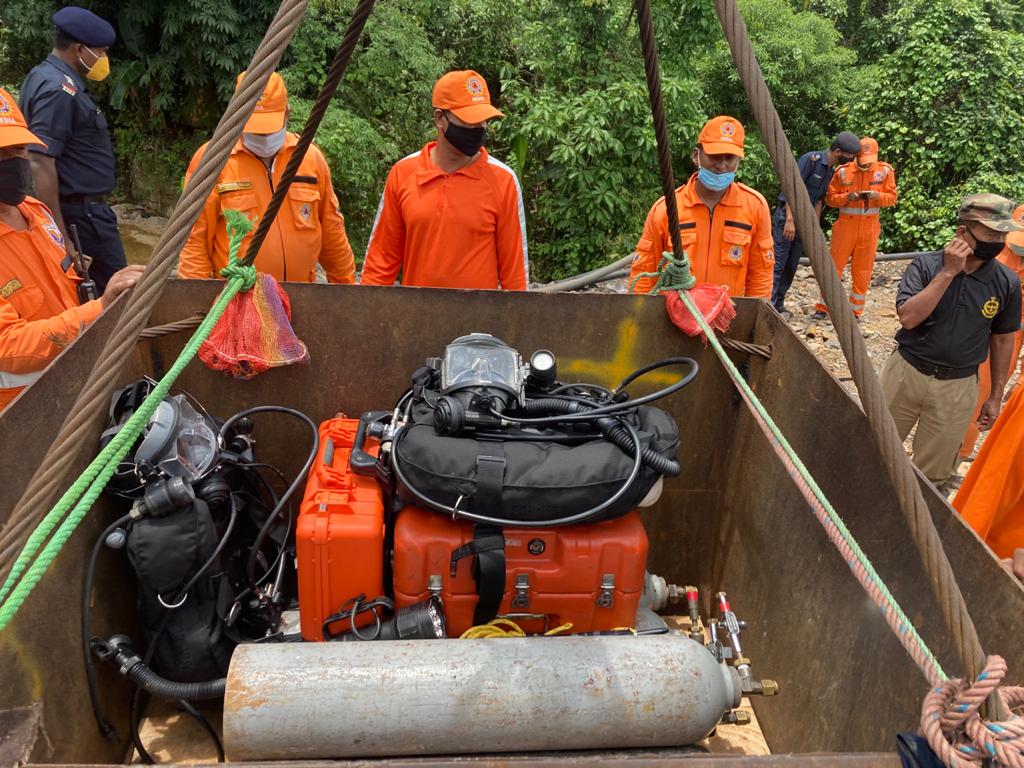Navy’s car rally on east coast flagged off from city
Indian Navy's Motor Car Rally Expedition on the East Coast was flagged off by Naval Officer-in-Charge (West Bengal) from INS Netaji Subhas, Kolkata on Monday.
Diving operations are further challenged by poor underwater visibility, unmapped shaft construction hazards, flotsam, and falling debris

Indian Navy rescue operation
In what can be construed as one of the most physically and tactically daunting operations, a 12-member Indian Navy diving team, that has been pressed into action since 12th June to rescue five miners trapped in a flooded coal mine located in the East Jaintia Hills of Meghalaya, has recovered the body of one miner. The diving effort to search for the remaining four miners is still on.
It may be recalled that the Indian Navy had assisted in the rescue and recovery effort of 15 miners trapped in a mine in Ksan, Meghalaya under similar conditions, in December 2018.
Advertisement
The defence spokesperson shared that the current operation entails the Indian Navy divers to lower themselves and their specialised diving gear into an extremely narrow shaft to a depth of almost 400 feet and carry out diving up to further 100 feet, to search for trapped miners within a complicated interconnecting labyrinth of horizontal shafts, with barely enough space for a person to crawl.
Advertisement
Diving operations are further challenged by poor underwater visibility, unmapped shaft construction hazards, flotsam, and falling debris. Further, diving for prolonged durations in low temperatures (3 – 5 degree Celsius) pose significant medical risks such as hypothermia.
Currently, over 50 personnel from National Disaster Response Force, State Disaster Response Force, District Disaster Response Force, Fire and Emergency Service, and the police have been deployed at the site, and the Naval divers trained to dive to such depths are carrying out the critical task of searching and retrieving the trapped miners.
Even with incessant rains, low visibility, and numerous obstacles, the Indian Navy divers assiduously continue with the search operation which has entered the sixth day, with the hope that any light at the end of the tunnel will bring lasting solace and closure to the families.
While the divers have specialized equipment such as the Diver Hand Held Navigation System (DHNS) for bottom-mapping of the mine-shaft, any technology can do little to ameliorate the raw, gut-wrenching adversity that such an operation entails.
Advertisement